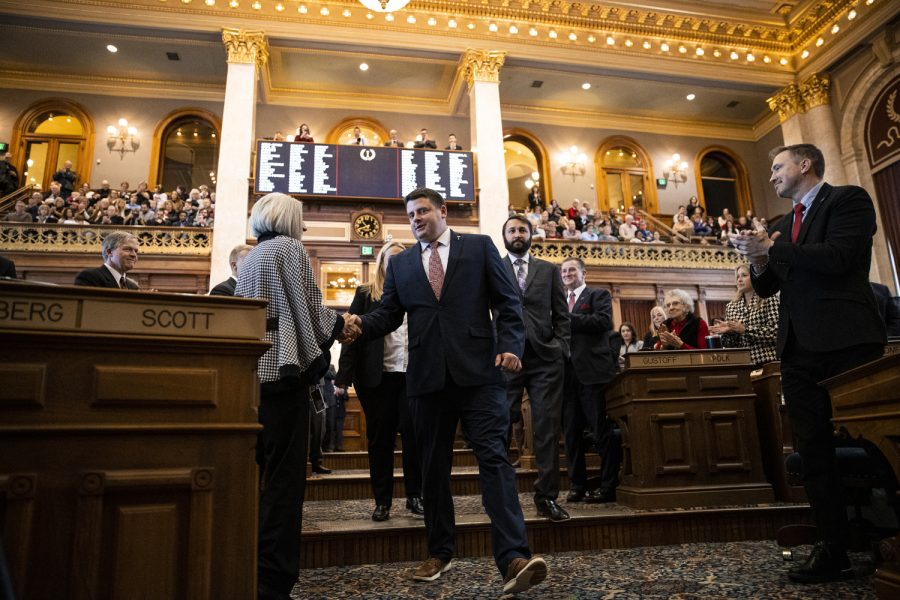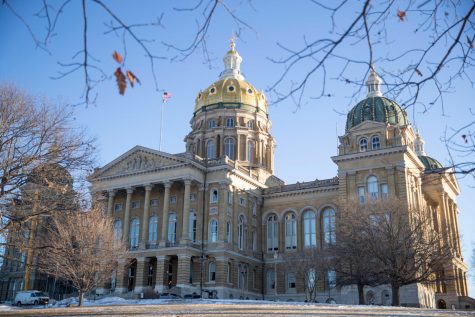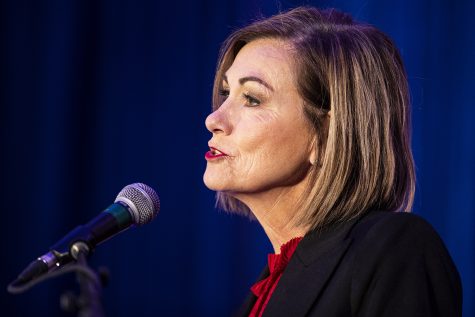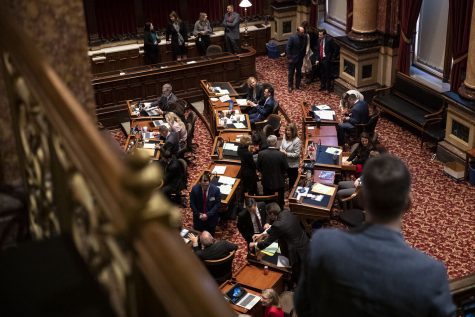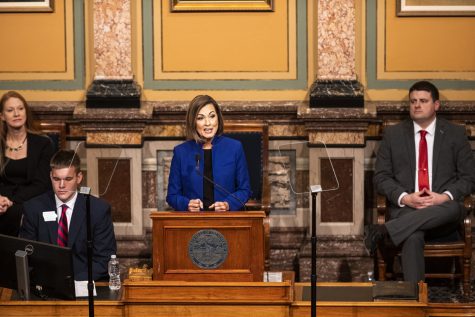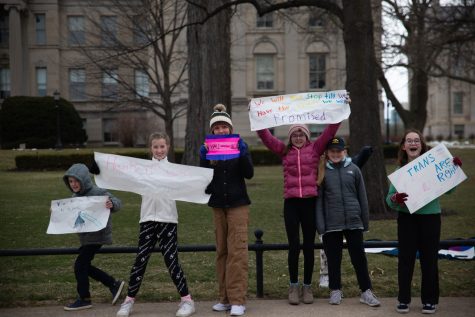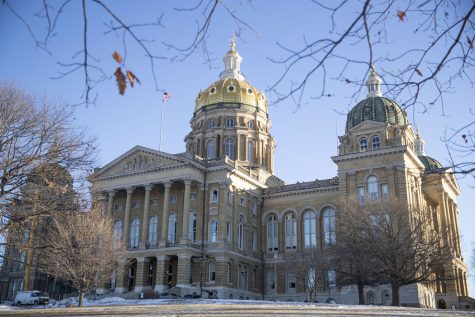‘Students First Act’ passed, committee votes on party lines
Gov. Reynolds private school financial assistance bill passed out of committee in the Iowa House and Senate on Wednesday. The bill will be eligible for floor debate early next week.
Speaker of the House, Pat Grassley, R-New Hartford, takes the floor during the first day of the 90th Iowa legislative session at the Iowa State Capitol in Des Moines on Monday, Jan. 9, 2023. Grassley was sworn in to be the 26th speaker of the house.
January 18, 2023
Gov. Kim Reynolds’ proposed “Students First Act” will advance to the House floor for debate early next week after the House Education Reform committee voted to pass the bill out of committee on Wednesday.
The bill passed a committee vote, 3-2, with Democrats opposed to the bill. If passed, taxpayer dollars will pay for private student tuition and costs in the state.
House Speaker Pro-Tempore John Wills, R-Dickinson, said during the committee meeting that the legislation is intended to focus on students instead of the school systems. He said Iowans should have the opportunity to send their students to a school that best fits their needs.
The two Democrats on the committee used their time to clarify the details of the bill such as spending and private school accountability.
House Minority Leader and ranking member of the House Education Reform Committee Jennifer Konfrst, D-Windsor Heights, said many constituents are concerned that the bill would not provide accountability for private schools because there is no elected school board that community members can turn to with concerns.
Wills said while any private institution that receives money from the educational savings account program must be accredited in Iowa — the same way public schools are — there are no enrollment mandates. He said private institutions may turn away any student for any reason.
Wills said if any parents are concerned with a specific private school they send their student to, parents transfer their child to a different private school or go to the private school board.
Committee chairman and Speaker of the House Pat Grassley laid down the possible fiscal outcomes of the bill. Grassley estimated by 2027, over 42,000 students will benefit from the bill, though revenue and fiscal predictions aren’t exact.
The funding estimate will not be vetted by the Appropriations or Ways and Means committees before heading to the floor, Grassley said. However, the Senate version of the legislation has been referred to the Senate Appropriations committee.
A fiscal note, or an examination of the fiscal impact of legislation prepared by the nonpartisan Legislative Services Agency, is in progress, Grassley said.
This bill was a major priority during Reynolds’ Condition of the State Address this year, where she highlighted school choice as a necessity to repair Iowa’s failing schools and provide parents with choices in their child’s education despite their financial circumstances.
The legislation will be eligible for a House floor vote next week where parties will decide on whether or not to pass the legislation.
Following the House Education Reform Committee meeting, Reynolds released a statement in response to the committee passing the bill. She said she looks forward to the bill reaching the floor in both chambers to officially see where state leaders stand on the issue.
“This is just the first step in giving educational freedom to Iowa’s students and parents. For too long, government has told parents when, how, and where their kids can receive an education,” Reynolds said.
In the Senate, the Education Committee referred the bill to the Appropriations Committee Wednesday after passing a party-line vote in the Senate Education Committee earlier Wednesday morning. In the Appropriations Committee, the financial impact of the legislation will be assessed before a recommendation is given by the committee.



